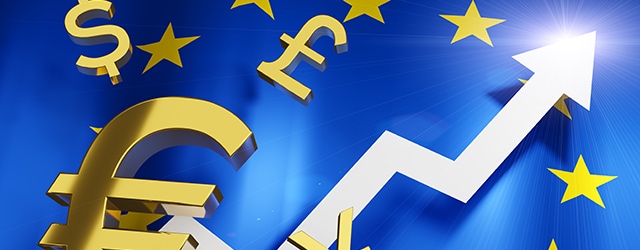The strong euro will dampen import prices, weighing on inflation, and will be a headwind for EU exporters.

The rise of the euro to a six-year high on a trade-weighted basis has caught the attention of the authorities. Christine Lagarde, president of the European Central Bank, says policymakers are “watching the appreciation of the euro closely for any impact on prices.”
The impact of a strong currency on prices—and trade—is fairly straightforward. The strong euro will dampen import prices, weighing on inflation, and will be a headwind for EU exporters. If the euro’s rise continues or accelerates, the ECB could lower rates or step up its €1.35 trillion ($1.57 trillion) bond-buying initiative.
The ECB kept its deposit rate unchanged at a negative 0.5% and made no changes in bond purchases at its September meeting. There is no immediate need to act, Lagarde says, noting that incoming data suggest a strong rebound in activity in the eurozone, albeit well below prepandemic levels.
The euro’s strength reflects a weak dollar, as well as hopes for a “European Renaissance,” now that the bloc has agreed to an unprecedented common borrowing and spending package to boost the economy. The €750 billion Next Generation EU fund will provide grants, half of which do not have to be repaid.
Meanwhile, the Federal Reserve’s shift toward targeting average inflation means it is likely to pursue “even looser policy, for even longer,” says Jonas Goltermann, senior markets economist at Capital Economics. The fall in real US interest rates (adjusted for inflation) and government bond yields relative to those in other developed economies “will continue to put significant downward pressure on the dollar,” Goltermann says.
Since the coronavirus pandemic intensified in March, the dollar has seen some bouts of “risk-off buying” as a safe-haven currency, but these have always proved to be temporary, says Win Thin, global head of currency strategy at Brown Brothers Harriman. “This time is likely to be no different.”



